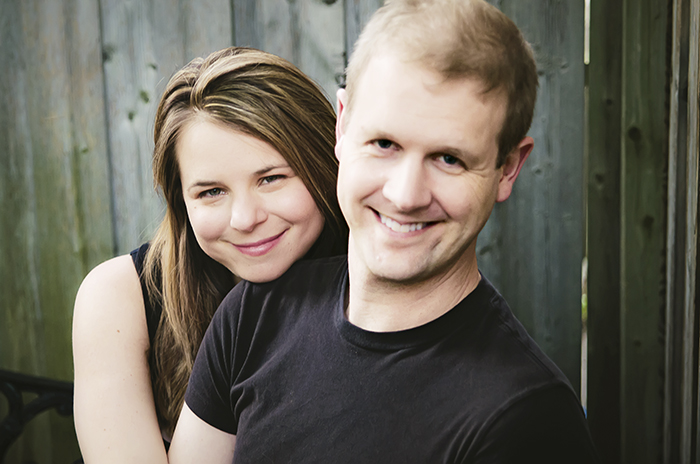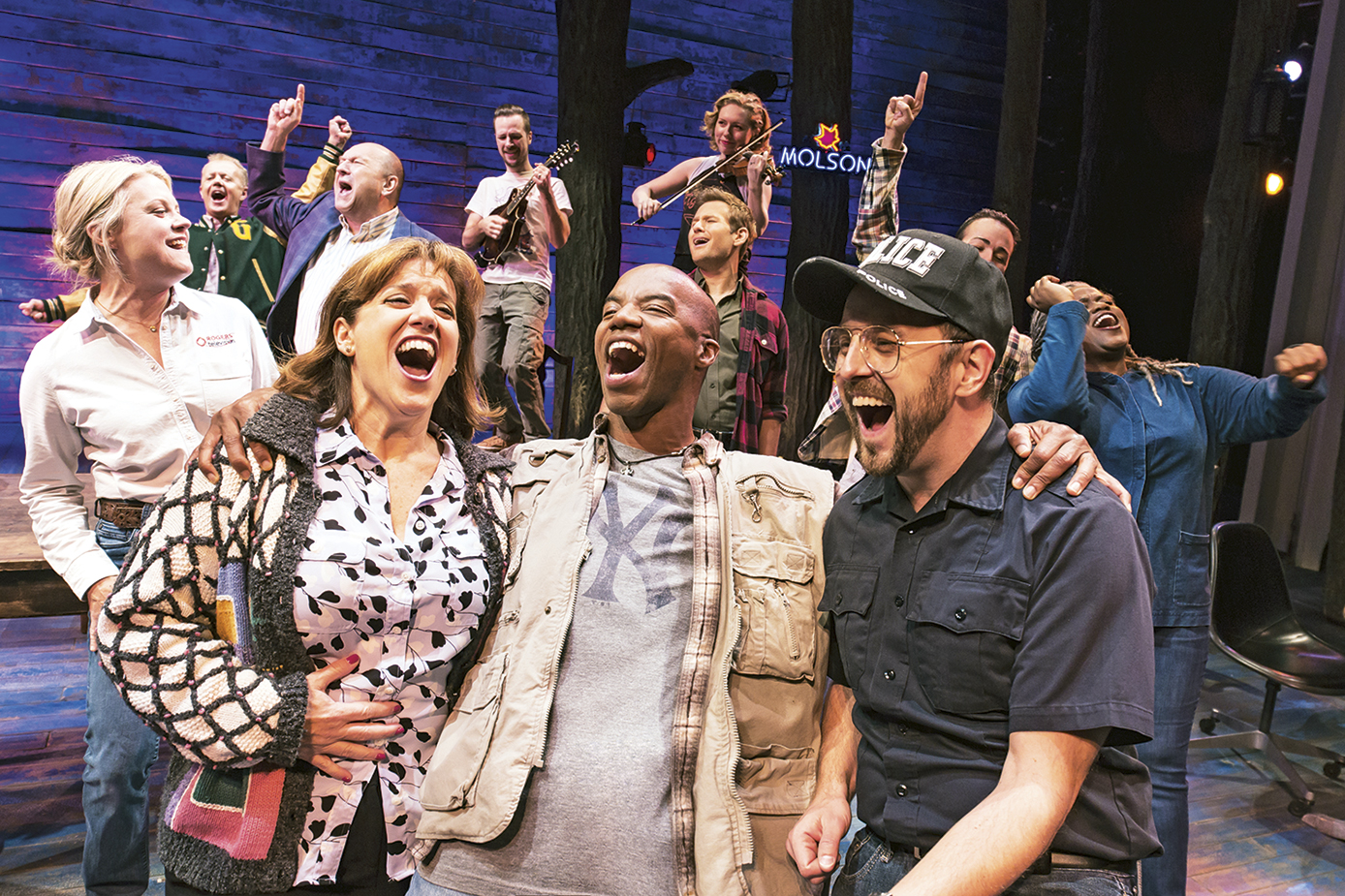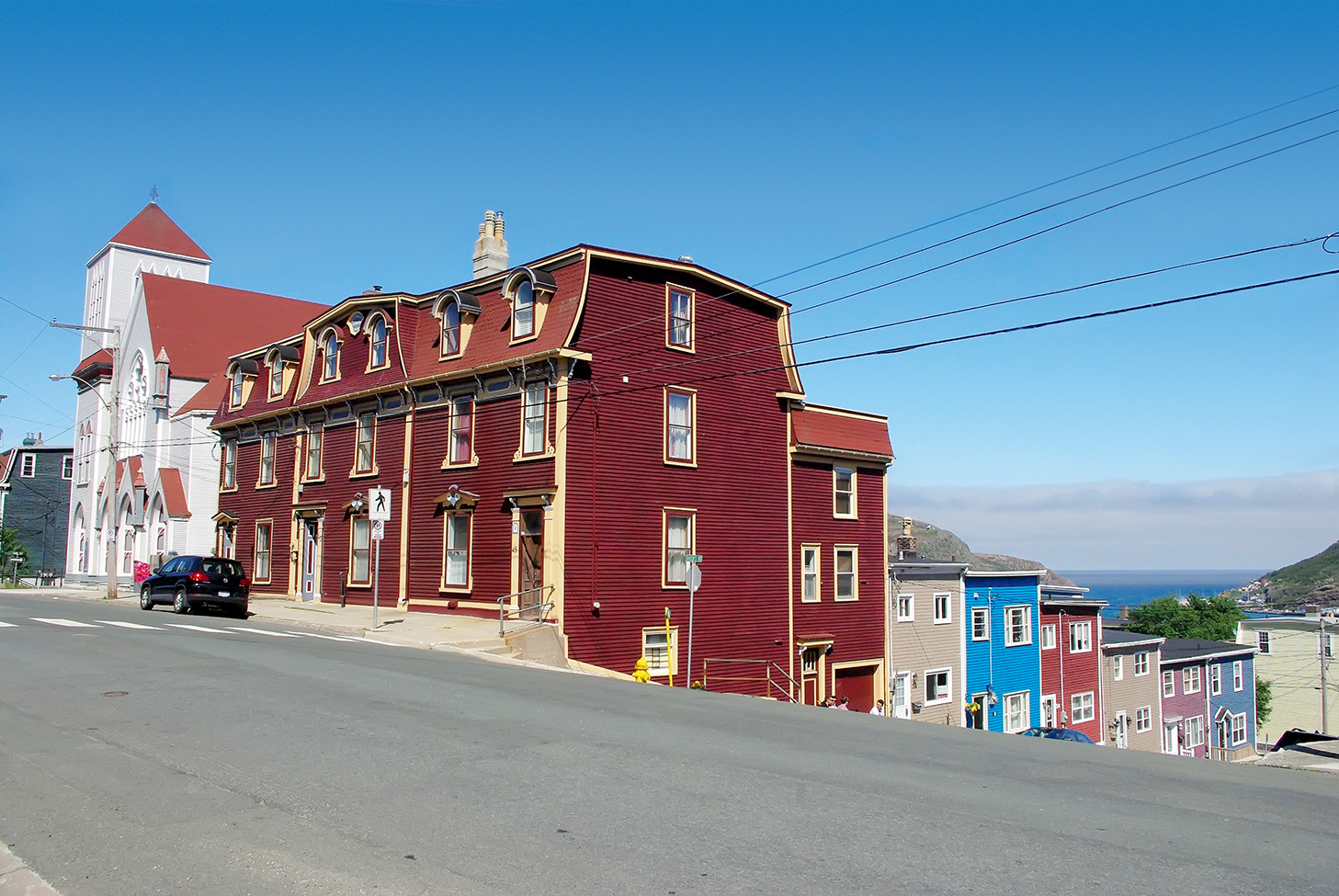Find out how Newfoundland conquered the Great White Way
By Peter Feniak
Photos: Matthew Murphy.
It’s been over six years since the Canadian husband-and-wife team of David Hein and Irene Sankoff landed in Gander, NL, to research what would become their hit Broadway musical Come From Away. The connection they made was instant and deep, and, Hein says, it hasn’t dimmed:
“Our goal wasn’t to get to Broadway or to write a Broadway show. We wanted to write about the story and these people we fell in love with. And so every day, when something new happens, it’s extraordinary to us.”
Something new and extraordinary keeps happening for this musical, which opened on Broadway last year, on March 12. Nominated for seven Tony Awards, including Best Musical, it won for Best Direction of a Musical. The Helen Hayes Awards, Drama Desk Circle Awards, and Outer Critics Circle Awards all gave it their 2017 prize for outstanding musical.
In just eight months on Broadway, the production had fully repaid the $12 million put up by its investors. And with a Sankoff and Hein screenplay, Come From Away is also slated to become a major motion picture.
Meanwhile, the modest couple who created the musical’s book, music, and lyrics remain close to the people who inspired it. For so many, Sankoff says, Come From Away has been “life-changing.”

Photo: Courtesy of Mirvish Productions.
Heartbreak and Hospitality
David Hein—from Regina, then Ottawa—and Irene Sankoff—from North Toronto—connected with Good Times from New York’s Upper West Side. Their four-year-old daughter, Molly, was at school. Not far to the south, at 45th Street and Broadway, is the Gerald Schoenfeld Theatre, where Come From Away has been packing in enthusiastic crowds since it opened.
There, Hein marvels, “the Prime Minister came, Hillary Clinton came, and last night, 49 retired flight attendants who had all worked with Captain Beverley Bass [a pilot who is a central figure in the musical] came to the show.”
Reviews have called it “stirring and inspiring,” “a big warm hug of a Broadway hit,” and “an exuberant antidote for what ails the American soul.” American news anchor Tom Brokaw said that it “celebrates the best that we can be.” Newsweek wrote that it “takes you to a place you never want to leave.” It also sprang from one of the darkest days of our times.
Come From Away had its beginnings in 2001 on the infamous date of September 11, when something astonishing happened in the town of Gander, in northeastern Newfoundland. Gander’s airport—long a busy refuelling hub for transatlantic flights—was suddenly alive with unexpected activity. Over the next hours, 38 wide-body commercial airplanes touched down at Gander International. Nearly 7,000 passengers and crew disembarked into a community far from the epicentre of a newly shaken world.
In an unprecedented security measure following the deadly terrorist attacks on New York’s World Trade Center and Washington’s Pentagon, international flights bound for the United States were diverted to approved destinations, many of them in Canada. Overnight, Gander’s population nearly doubled as visitors deplaned and began a long anxious wait for an all-clear.
Slowly the passengers and crews learned about the horror of the attacks, and over the days to come, they also learned about their hosts. As word spread quickly, Gander and surrounding villages pitched in to house, feed, clothe, and comfort the tense, disoriented visitors. Doors were opened everywhere. Cots were set up in gyms, churches, and schools. Strangers were welcomed into homes. Striking bus drivers dropped picket signs and got busy. Bakeries worked overtime. Improvised assembly lines provided soup and sandwiches. Phone banks were installed for calls home, and cable TV hookups for news updates.
When weariness set in and tensions rose, the hosts in the suddenly packed town lifted spirits with social events and lashings of the famous Newfoundland rum known as screech. It was a stunning show of hospitality. In a heartbreaking time, kindness shone. Less than a week later, the planes and their people were gone.
The story of how this remarkable event became a Broadway smash begins in Oakville, ON, at Sheridan College’s admired incubator for musicals, The Canadian Music Theatre Project. Its founder, Michael Rubinoff, sensed the story’s potential, but when he first suggested to writers that it could be developed as a musical, he was rebuffed. Was the grim reality of the deadly attacks too fresh? Sankoff and Hein suspect so.
“Somebody told us the story about The Sound of Music,” Hein remembers, “that when it originally premiered, everyone was terrified that it was going to be labelled as ‘the Nazi Musical’ or ‘the World War Two Musical.’” Sankoff and Hein saw things differently, Sankoff says, “because we were here [in New York] on 9/11.”
They met as students at Toronto’s York University and became a couple. They followed their love of theatre to studies in New York. On the day of the attacks, Hein says, “we were in International House, a residence for graduate students from around the globe—all taking care of one another.”
“We saw and experienced the way New Yorkers responded in that moment,” Sankoff adds. Out in the streets, in the smoke and chaos, she says, “you could reach out to anyone and say, ‘How are you doing?’” The “tough New Yorker” façade was gone; shared humanity shone through.
A month after 9/11, the couple decided to marry. Eventually they returned to Canada, trying to keep their theatre dream alive. They wrote, and performed together in, a musical play about Hein’s mother and her late-life post-divorce change. It was called My Mother’s Lesbian Jewish Wiccan Wedding. Warm and funny, it went from a fringe-festival success to a popular and now widely produced stage production.
When Rubinoff approached Sankoff and Hein with “the idea,” they signed on, and with Canada Council support, the pair flew to Gander. They arrived on the 10th anniversary of 9/11, as once-stranded visitors—many of them New Yorkers—reunited and embraced the Newfoundland community again. Hein remembers:
“There was a commemoration ceremony and the town was filled with people. And everyone wanted to tell stories. I’d grown up on Newfoundland music and had always wanted to go there, but it was all very new for both of us. People spent hours with us and then people invited us…well, Beulah invited us to the Legion Hall to get screeched in. And Mayor Claude Elliott screeched us in together with Nick and Diane, Beverley Bass and her husband. We made so many friends. We were welcomed into people’s homes time and time again. It was really incredible.”
The names just mentioned identify some of the main onstage characters. While a few characters are composites, the players represent real people. We meet Beulah Davis of Gander who greets visitors at the local Legion Hall and bonds with New Yorker Hannah O’Rourke. Both of their sons are firefighters, but Hannah’s son is missing after the 9/11 attack. Beverley Bass, proud to be one of America’s first female commercial pilots—and the first captain—finds her passion for flying tested by tragedy. Nick, a straitlaced Englishman, and Diane, a spirited Texan, are drawn together by the experience. Kevin and Kevin, a gay couple, begin to drift apart. Ali, a Muslim chef, finds a way to help. Bonnie Harris, manager of the local animal shelter, helps tend to the traumatized animals onboard. Mayor Elliott, a coordinator of the welcome efforts, seems to be everywhere, as does intrepid Constable Oz Fudge. In all, 12 actors play both Newfoundlanders and the stranded “come from aways.”
Given the gravity of the 9/11 attacks—and the contrasts of caring and kindness with fear and uncertainty, of stranded travellers with hardy locals, of laughter with tears—Come From Away has great emotional power. It doesn’t sugar-coat the experience. Anxiety, loss, and deep sadness are all part of its story.
At first, the visitors lament, in song, their shocking arrival “somewhere in the middle of nowhere.” But the Newfoundland volunteers ease the pain. A deep bond begins to grow between these citizens of The Rock and those who had come from away. From its rousing opening number, “Welcome to the Rock,” to “Something’s Missing” and the bittersweet finale, Come From Away tugs at the heart again and again. Newfoundland reels lift the spirits, romantic ballads express loss and longing, and there’s even a taste of Céline Dion’s “My Heart Will Go On” from the movie Titanic and a multilingual take on the Prayer of St. Francis. Night after night, audiences respond with thunderous applause.
“The best thing for us was on opening night—having the New York audiences cheering for what the Newfoundlanders did,” Hein says. “We brought some of them [from Gander] onstage that night. They always tell us, ‘It’s just ordinary; it’s just what anyone would do,’ and to see the New York audience say, ‘It’s not; this is something we so value and we want to cheer and give you a standing ovation,’ that’s the best thing in the world.”
The production required careful development over five years. In the weeks they spent in Gander, Sankoff and Hein filled their notebooks with stories. Back at Sheridan College, the musical began to take shape in a workshop (2012), then a full stage production (2013). It was showcased and gained major US financing, then continued to evolve through regional productions—to rave reviews—at La Jolla Playhouse in California and at Seattle Repertory Theatre (2015). Then, on its way to Broadway came a brief, jubilant, sold-out run at Toronto’s Royal Alexandra Theatre (2016). Now, as the Broadway show goes on, an all-Canadian cast has brought Come From Away back to the Royal Alex, where it will its run will continue into September.
Finding Plan C
Come From Away has seen some remarkable milestones. To some, nothing is more remarkable than the fact that this smash hit came from a married team who wrote it together.
“It’s a tough thing,” Sankoff laughs. Hein says, “So many people say, ‘You guys work together and you’re married? I couldn’t do that with my partner.’ It’s certainly challenging and Irene and I have to—well, there’s a phrase: ‘Writing is fighting.’ But one of you comes with a Plan A and one of you comes with a Plan B. You have to sort it out.
“And I actually think being married gives you the tools, because you’ve already sorted out, you know, who’s going to take out the garbage and take your daughter out to play. We’ve found we’re so much stronger by finding a Plan C together.”
The couple enjoy their small New York apartment but still have a house in Toronto. “We go back and forth a lot,” Sankoff says. Travel depends on Molly’s school year.
The four-year-old’s awareness of her parents’ success is growing. “We were making wishes in a fountain,” Hein smiles, “and Molly said, ‘Daddy, you got your wish—you’re a show-writer.’ I’m not sure that she really knows what a show-writer is, but she knows it’s our show.”
By now, scores of people have been involved in the growing life of this hit musical, and Sankoff and Hein have stayed close to the larger Come From Away family—the players, production staff, and the real people behind the people onstage.
Meanwhile, back in Gander, Hein says, “They’re doing tours there now. The museum’s attendance has gone up. The town is talking about how to deal with it. Mayor Elliott—former mayor, just retired—was telling us that Gander is now the second-most popular tourist destination in Newfoundland [after St. John’s and just ahead of Gros Morne National Park].” There’s even talk of investment in Gander’s vast, quiet airport. “We couldn’t be more thrilled,” Hein says.
The scars of 9/11 remain, and pain and loss can’t be erased by song, but after seeing Come From Away, people walk out of the theatre with hope. Hein looks at it this way:
“It teaches people to be kind. It reminds people that you ought to be kind and you can be kind. It’s not a superpower that the Newfoundlanders have; it’s something that’s part of us all. Maybe we just need a reminder once in a while.”



